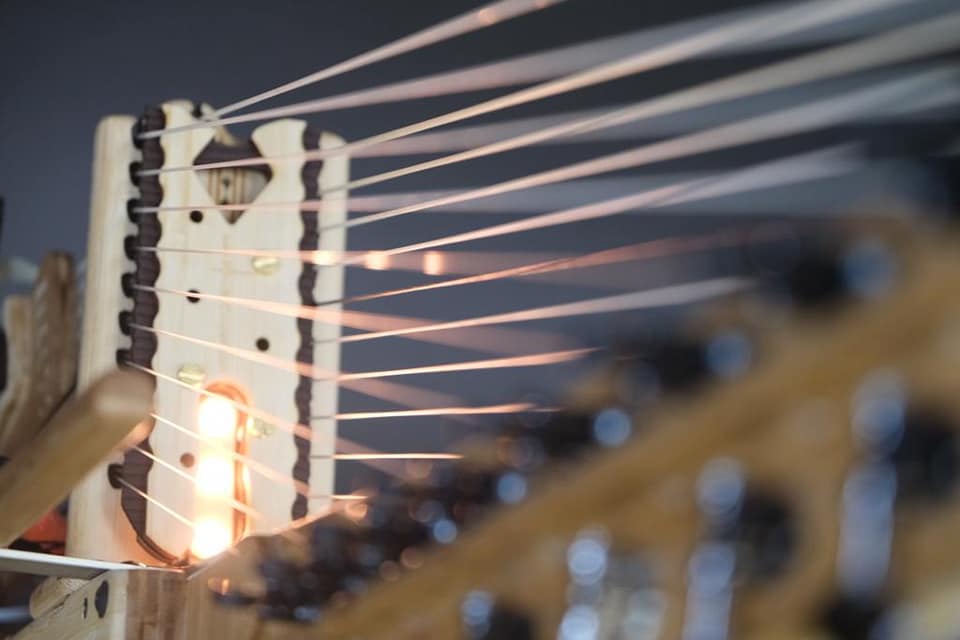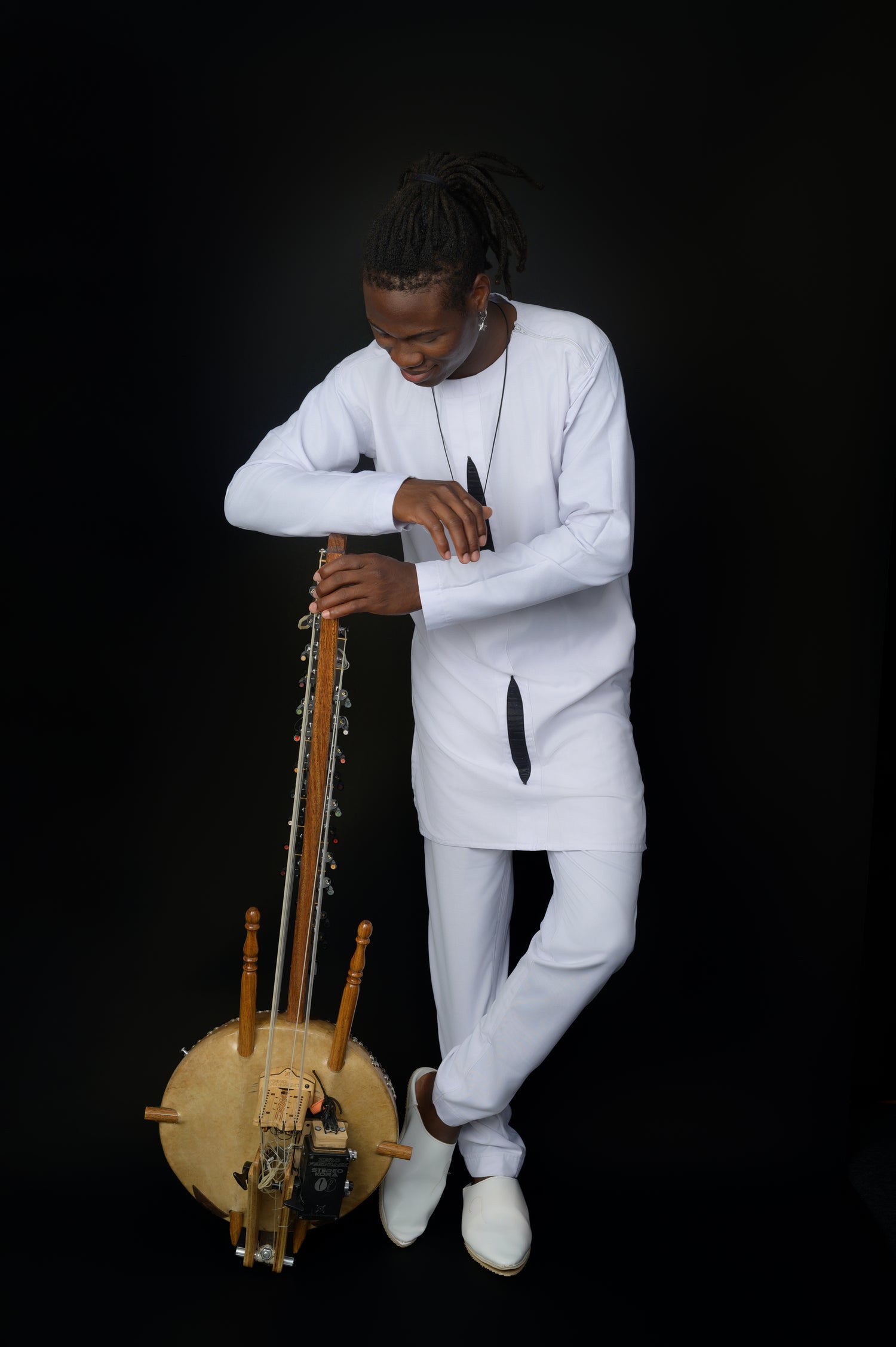
KORA

About Kora
The Kora (Manding languages: ߞߐߙߊ kɔra[1]) is a stringed instrument used extensively in West Africa.
The kora is made from a gourd cut in half, covered with cow skin, and equipped with a long hardwood neck. It has 21 strings, each playing a different note, supported by a notched double bridge. The kora is a "double-bridge-harp-lute," with strings in two divided ranks typical of a double harp. The sound resembles a harp, though it is often played with polyrhythmic patterns, similar to flamenco or Delta blues guitar techniques.
Traditionally played by jali (griot) families in West Africa, the kora is prominent in countries like Guinea, Mali, and Senegal. Modern koras sometimes feature additional bass strings, and strings are now often made from nylon fishing line. Historically, accessories like the "nyenmyemo" were used as amplifiers, but today electronic pickups are preferred.
The kora's influence extends beyond traditional music, inspiring instruments like the gravikord and gravi-kora, electro-acoustic versions adopted by modern players.
